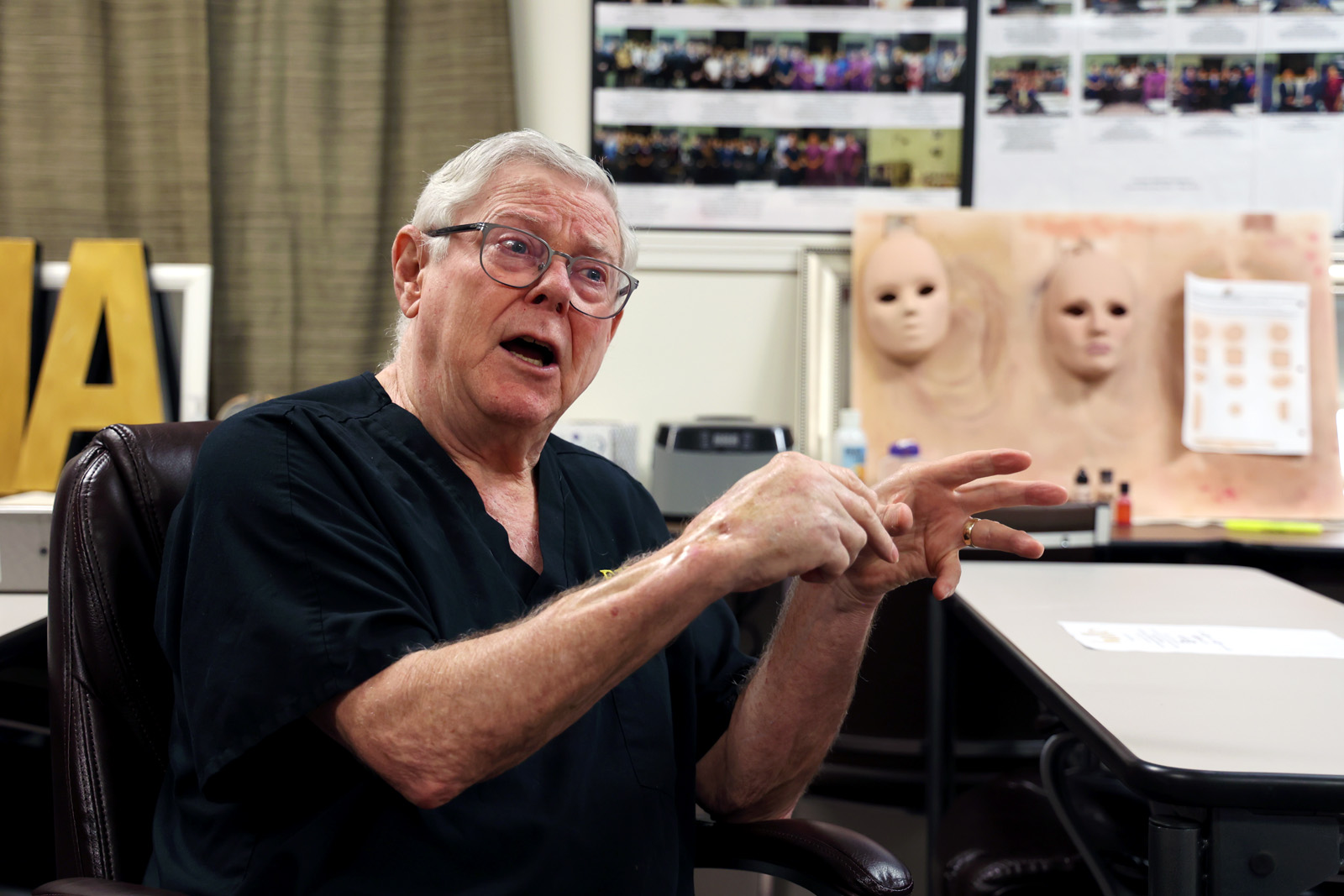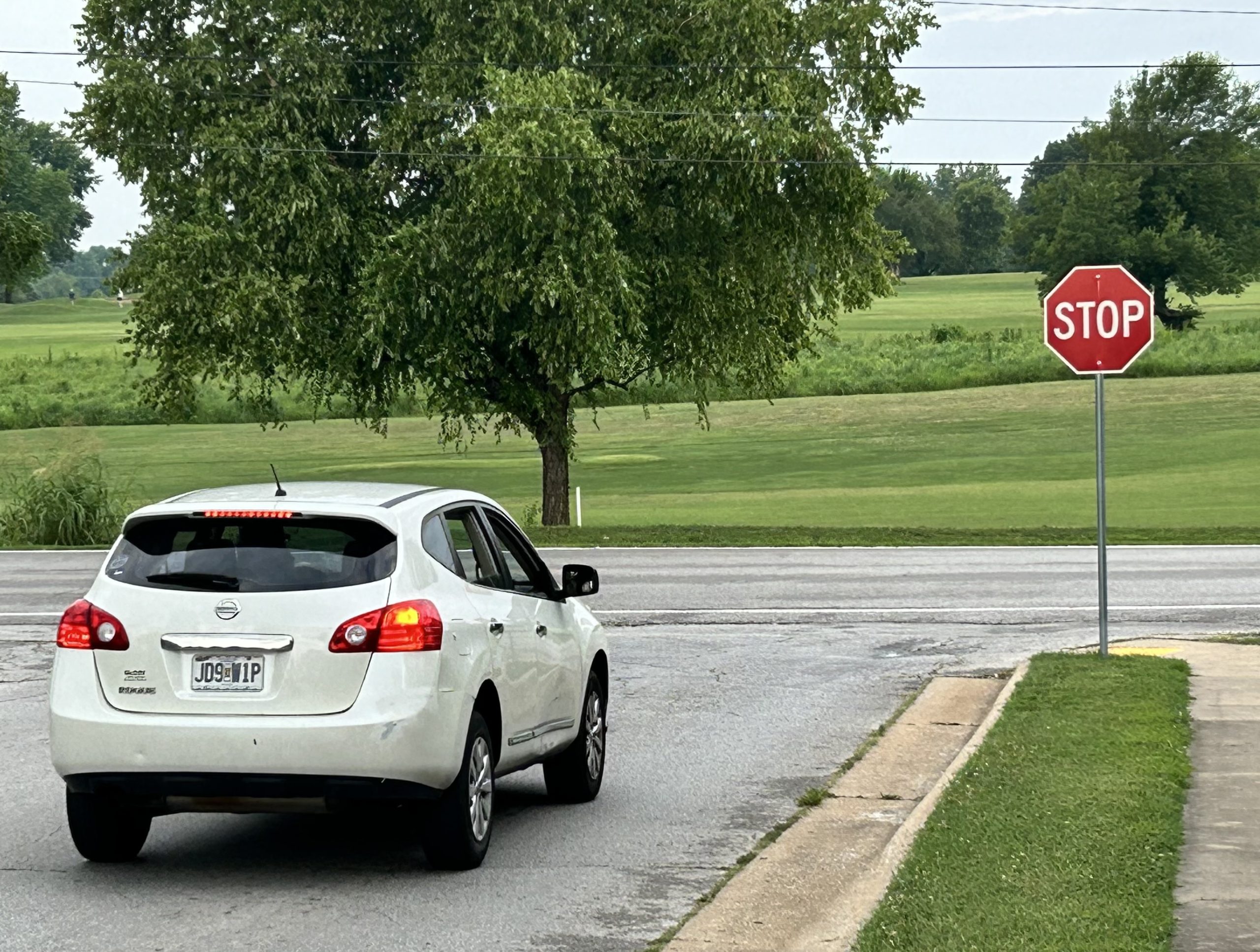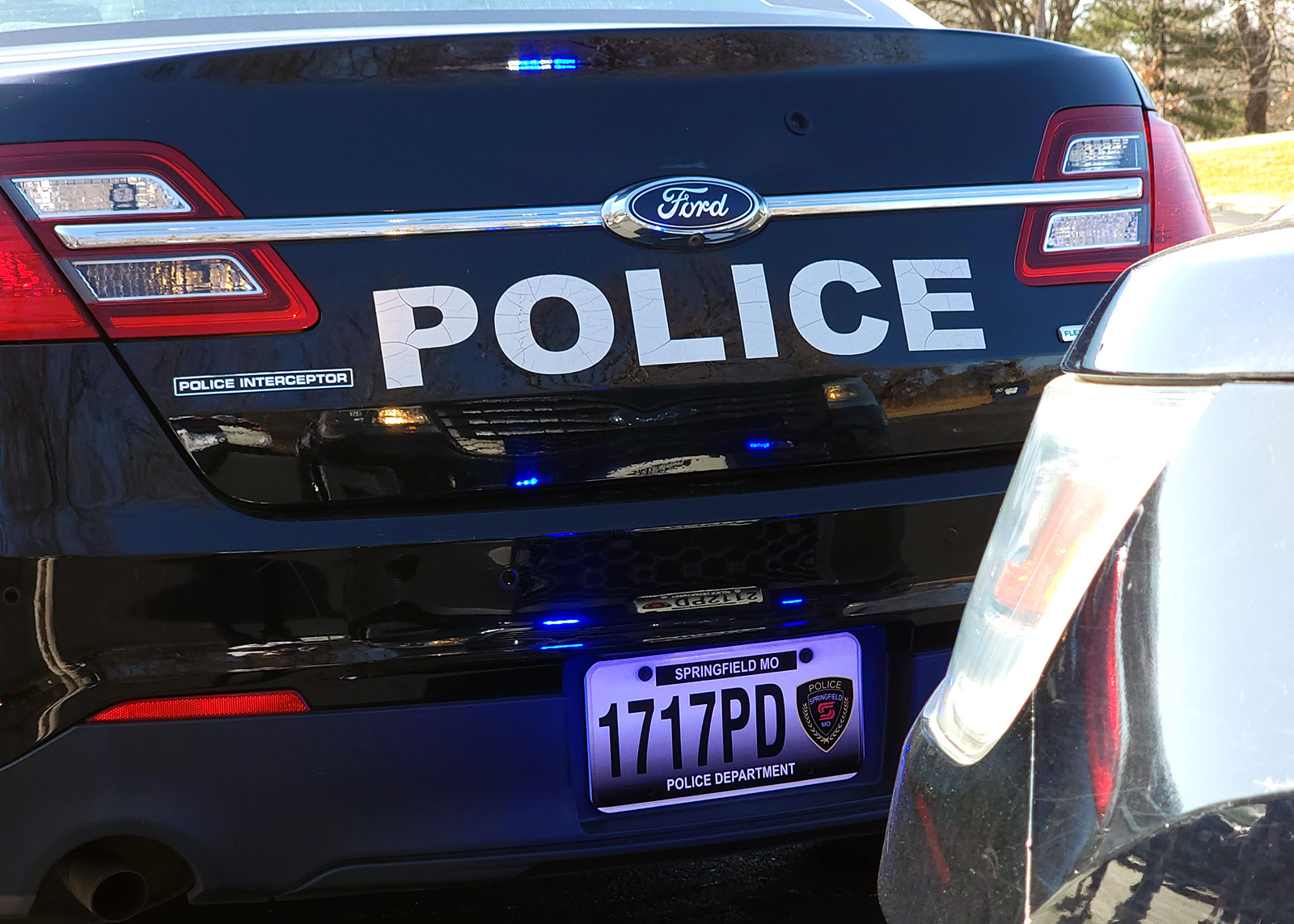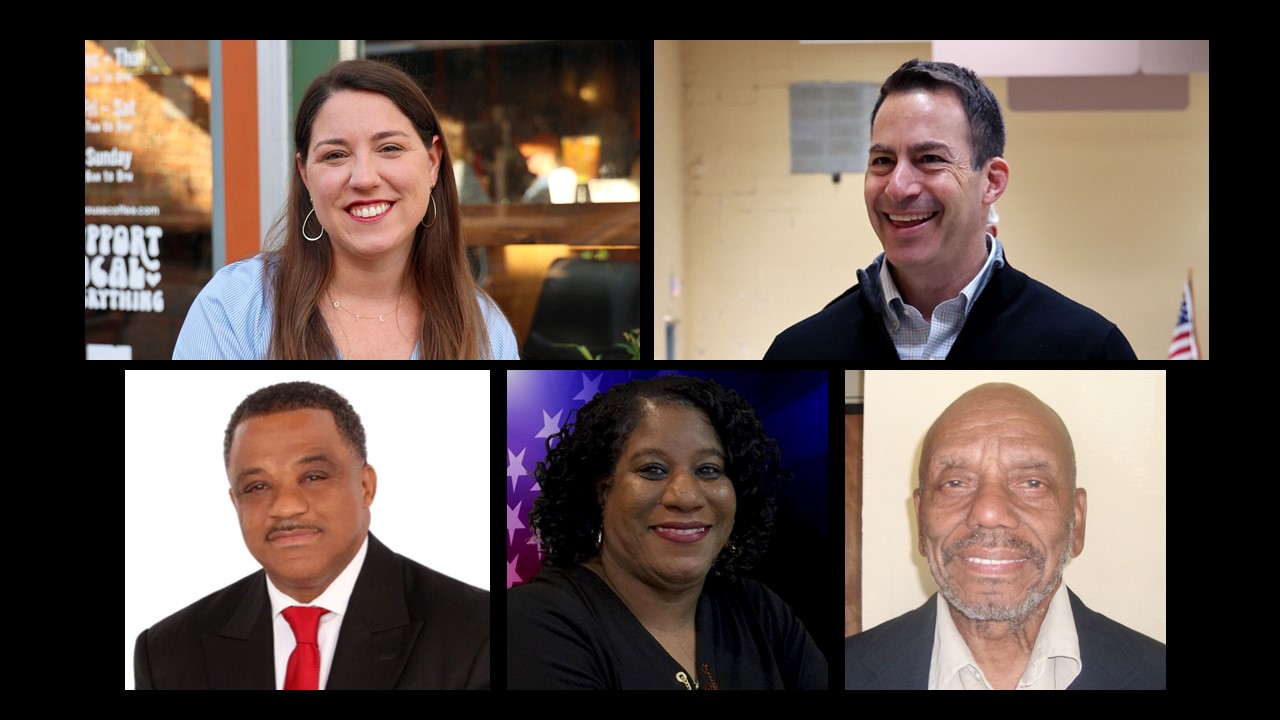OPINION |
On the walls of a Springfield jewelry shop are photos of the man known in pro wrestling circles as Mike Pappas, the Flying Greek.
One picture hanging in Manoli’s Jewelers shows Pappas posing with wrestling legend Andre the Giant.
Pappas performed in the 1960s, an era of gymnasium crowds and late-night black-and-white TV coverage, on into 1978. He was a small, thick, wiry man with a hairy chest, mutton-chop sideburns and tight wrestling trunks. He was born in Greece.
Often, he was airborne, thus “the Flying Greek.”
Sometimes he was up in the air, horizontal to the ground, delivering head-high scissors kicks. Or just as often, he took flight when a mountain-of-a-man hoisted him overhead and catapulted him across the ring — or beyond.
For whatever reason, in the grand theater of pro wrestling, “Mike Pappas” sounded like a better Greek name than the real Greek name of Manoli Savvenas. At least it was easier to pronounce.
Yes, Manoli Savvenas is Mike Pappas, the Flying Greek.

Savvenas is the small man who, for over 40 years, has done the most intricate of jewelry repair work at his shop at 2700 S. Glenstone Ave., in the Brentwood Shopping Center. The business also sells retail. He’s the same guy who once traveled the country in a Chevrolet Impala with his occasional tag-team partner Andre the Giant.
At 8 p.m. Friday, Dec. 10, a 40-minute documentary film on Savvenas will premier at the Historic Fox Theatre, 157 Park Central Square in Springfield.
Doors open at 7 p.m. The movie will be followed by a Q-&-A. Madusa, Debrah Ann Miceli, a former professional Hall of Fame wrestler, narrates the film. She will be part of the Q-&-A.
Tickets are $18.18 (including fees) and VIP tickets are $115.55 (including fees) and can be purchased online on Manoli’s website.
VIP tickets include items like a photo autographed by “Mike Pappas,” a limited-edition Flying Greek shirt and Greek snacks during the meet and greet.
Ten percent of ticket sales will go to Fight Colorectal Cancer, a Springfield nonprofit.
Savvenas has colon cancer but is doing well. The money that goes to the nonprofit does not go to him.
Story continues below
On the road with Andre the Giant
Savvenas tells me two things no one has ever told me before. First, his chemotherapy treatment has not made him sick.
“There have been minor things,” says Valerie, his wife of 48 years. “A couple of sores on his tongue. There have been minimal issues.”
Savvenas, who has a Greek accent as thick as Moussaka, tells me the second thing I’d never heard before. It involves the blood transfusion he had as part of treatment.
“I am now for sure a Greek hilly-billy,” he says. “Because I had a blood transfusion with hilly-billy blood.”
He says his tumors have shrunk 60 percent in size.
“I feel really good,” he says. “I still eat well. I am sleeping well. I am very thankful for my doctors.”
To prove his fitness, he asks me to feel his right biceps. It’s like oak. This is no ordinary 80-year-old man.
In addition to being strong, Savvenas is a gregarious storyteller.
One of his favorites is about traveling the country with Andre the Giant, the famous pro wrestler who had a role in the 1987 movie “The Princess Bride.”
André René Roussimoff was 7 foot, 4 inches and 520 pounds. He died in 1993.
Savvenas, born on the Greek island of Rhodes, has never been much of a Colossus. He is 5 foot, 4 inches; the most he’s ever weighed is 170 pounds.
Savvenas had a Chevrolet Impala with a bench seat in front, meaning the driver and front-seat passenger had to sit the same distance from the dashboard.
“Andre did not want to insult me so he would sit in front with me,” Savvenas says. “Which meant that he would have his knees pushed up against the windshield the whole trip.”
Sometimes a happy life; sometimes not
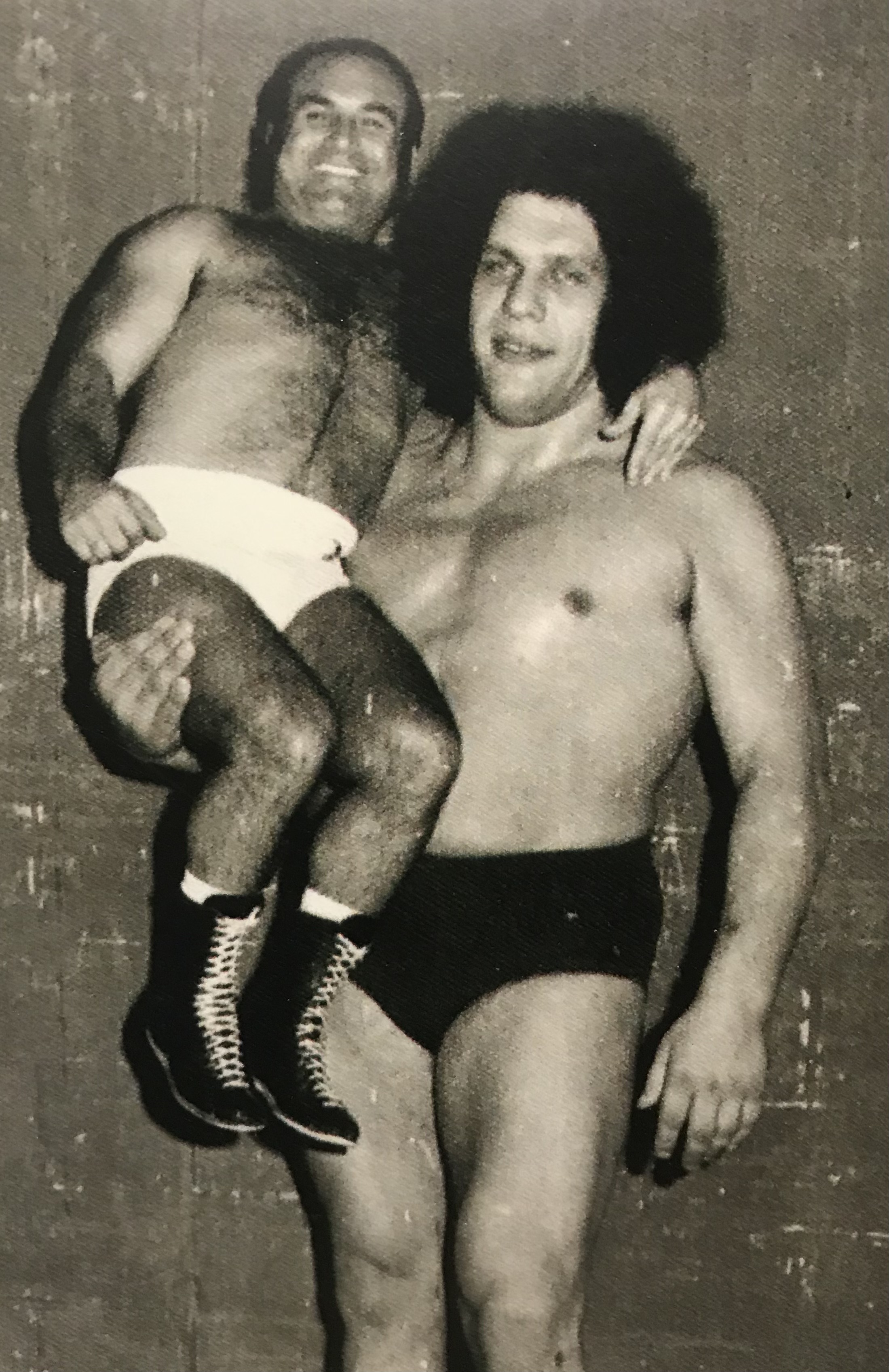
Rhodes is in the Aegean Sea, a mere 28 miles from Turkey.
“When you woke up in the morning, you could see the mountains of Asia Minor,” he tells me.
His parents grew grapes and olives. His mother had 11 children; four died young. The three youngest survive today — Manoli and two sisters.
The family had no running water and no electricity.
“After the war, the whole of Europe was like that,” he says.
He did homework by the light of a kerosene lamp and was not a particularly good student, he says.
He and his siblings spent their days swimming in the sea and soaking up sun on the beach.
“Sometimes it was happy,” he says. “A lot of times, it was not very happy. A lot of times, we did not have enough to eat. I used to go to school in the morning, and I did not have breakfast.
“There was not much to eat. We would come back to the house after playing and have a slice of bread. We’d put some water on it and some sugar.”
When Manoli was 11, a neighbor opened a jewelry repair shop. His mother asked the man if he would train Manoli. He agreed.
Years later, a man from Athens came to Rhodes and offered to teach young men how to box.
So Savvenas boxed. He was good.
“I am naturally strong,” he says.
One day he came home from boxing practice with an eye so swollen, bruised and grotesque that his mother saw it and fainted.
“My brother told me, ‘Manoli, if something happens to mom, it is going to be your fault.'”
So he promised his mother he would never box again.
Familiar refrain: “You’re too small”
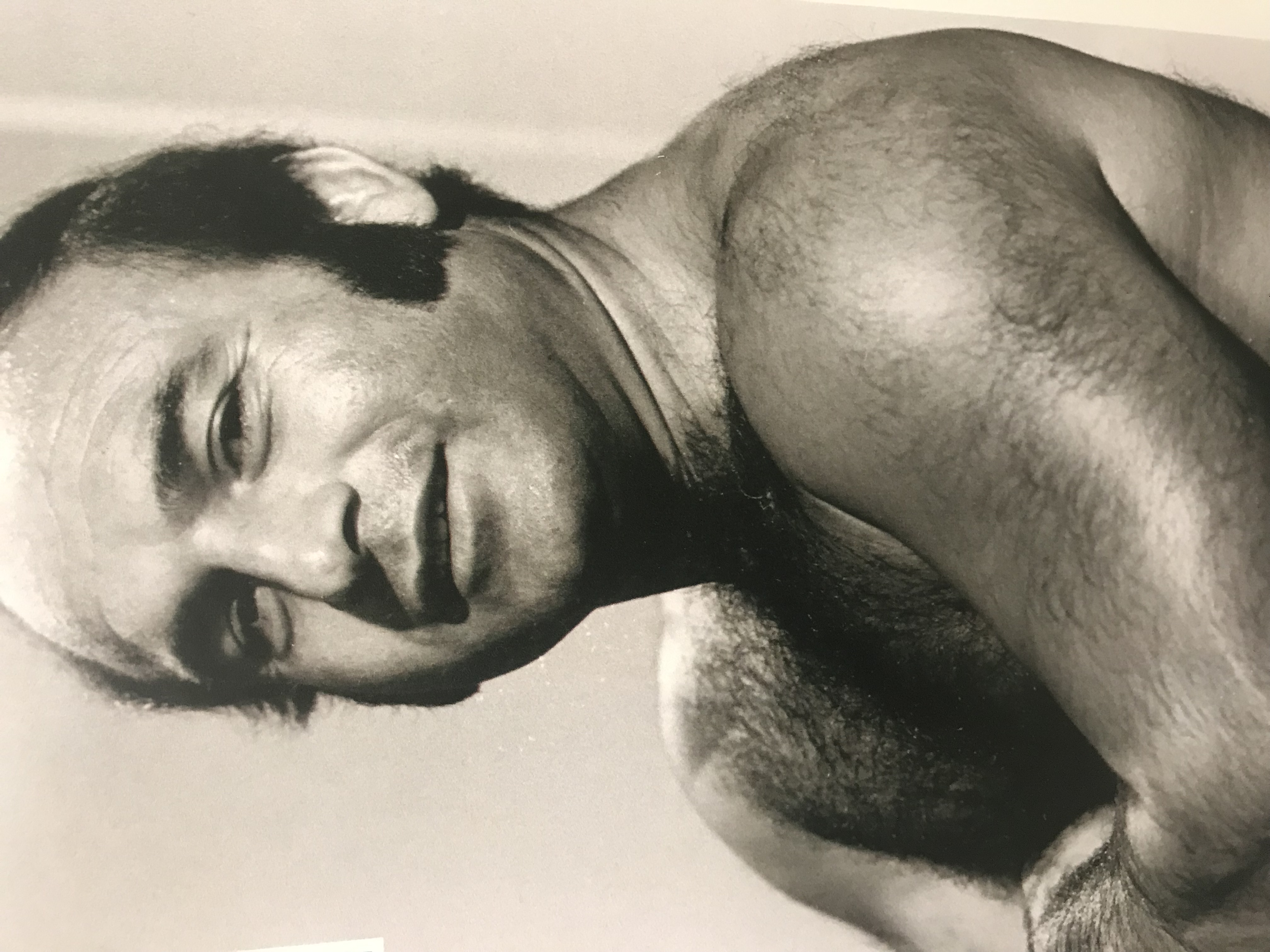
When he was 18, he moved to Australia, where he had an aunt.
In 1959 he lived in Melbourne, site of the 1956 Summer Olympic Games.
He worked for a jeweler but became bored, so he again laced up his boxing gloves despite his promise to his mother, who, after all, was on a distant continent.
He won 15 of 15 amateur bouts.
Then, for the first time, he wrestled. But this was Greco-Roman wrestling, which forbids any holds below the waist.
The Greco-Roman style also is unlike professional wrestling in that you are not allowed to toss your opponent out of the ring or strike him with a folding chair.
It just so happened that a promoter brought a handful of professional wrestlers from the United States to Melbourne, and Savvenas met them and was intrigued.
Fast forward, and young Savvenas now lives in the United States. He could get a visa only because a sister was getting married here.
“I knew some American wrestlers, and that week they had a show at Madison Square Garden,” he says.
Savvenas went to New York City to try to get into pro wrestling.
“The guy looks at me and says, ‘You are too small. I don’t think we can use you.”
Savvenas then turned to another man who happened to be present, Edward George Farhat, also known as pro wrestler The Sheik.
The Sheik had the same critique: “You’re too small.”
So Savvenas, always the stubborn underdog, went to wrestle in a land where pro wrestlers were closer to his size. He headed to Mexico.
He traveled that country eight months wrestling lucha libre, or freestyle. He even squared off against the legendary Mexican pro wrestler, the Blue Demon.
Can you body slam me?
Savvenas got his break. He connected with a promoter in Tennessee and launched his U.S. career as the aforementioned Mike Pappas, the Flying Greek.
He would leap into the air to kick and snare opponents.
I asked how he learned these acrobatic moves.
His answer, of course, was that he had watched and studied a lot of old Tarzan movies.
He married Valerie Barnes in 1973 in New Jersey. She was 18 and he was 32.

Eight years later, they would marry again in the Greek Orthodox Church in Rhodes.
When they met, she knew nothing of his pro-wrestling fame.
“The first thing that hit me was how nice he was,” she says.
Once she discovered that her “Manoli Savvenas” was also “Mike Pappas, The Flying Greek,” she jokingly asked if he could body slam her.
“The next thing I knew, I was upside down over his head,” she says.
He did not body slam her and the couple went on to have three children — two sons and a daughter.
One of the sons is a Marine who served two tours in Iraq. Manoli and Valerie have been recognized in the Ozarks for their nonprofit work in supporting U.S. troops.
Manoli also has a 50-year-old daughter from a relationship before his marriage.
Throughout his 17-year pro wrestling career, Savvenas has had over 100 World Wide Wrestling Federation matches. The WWWF is a precursor to World Wrestling Entertainment.
He has wrestled Randy Savage and appeared about 10 times at Madison Square Garden, once considered the sport’s top venue.
He also wrestled in Canada and returned to Australia to grapple.
He was a crowd favorite because of his small size and high-flying style.
More often than not, promoters would tell him he was destined to lose that day. Sometimes, in an era where there could be multiple performances a day, he would lose two or three times a day.
Savvenas says promoters wanted fans to believe professional wrestling was real, he says, and they worried that it might be hard for them to believe that he could beat wrestlers twice his size.
Yes, I hate to break this to some of you: pro wrestling is not real.
While I’m at it: Elvis is dead.
But Savvenas is not fond of the word “fake” in describing pro wrestling.
“I would wrestle guys 250 pounds and 6 foot 4 who would pick me up and throw me to the other side of the ring. That is not fake.
“You can get hurt really bad. Really bad.”
His right shoulder aches to this day, he says.
His worst injury was when he was tossed out of the ring toward audience members, who quickly dispersed.
He landed on his back on concrete. He could not walk for days.
“It was fun sometimes, and sometimes it was a pain in the ass.
“You have to wrestle even if you are hurt. A lot of times, I was really hurt but I had to wrestle because if you don’t wrestle they fire you. You learn to live with pain — especially for a guy like me. To get body-slammed 10 times for seven days a week.”
His body wore down and the constant travel wore down on him, too, especially with a young son at home. He retired at 38.
He was living in Kansas City when he returned to the jewelry business.
At first, he worked for someone in Springfield repairing and cleaning jewelry. He and Valerie opened their own store at their current location in 1985.
They like it here and don’t plan to leave.
The film “The Flying Greek” was made by Flintlock Syndicate Productions and directed and produced by Jason Brasier. Carbon Trace Productions is co-producer.
Brasier tells me he first learned of Savvenas’ pro wrestling background when Savvenas was a guest on the locally produced “The Mystery Hour.” Brasier works a camera for the show.
“I had been wanting to get back into documentary filmmaking and was trying to find a subject that spoke to and inspired me,” Brasier says.
He found that subject in Savvenas.


